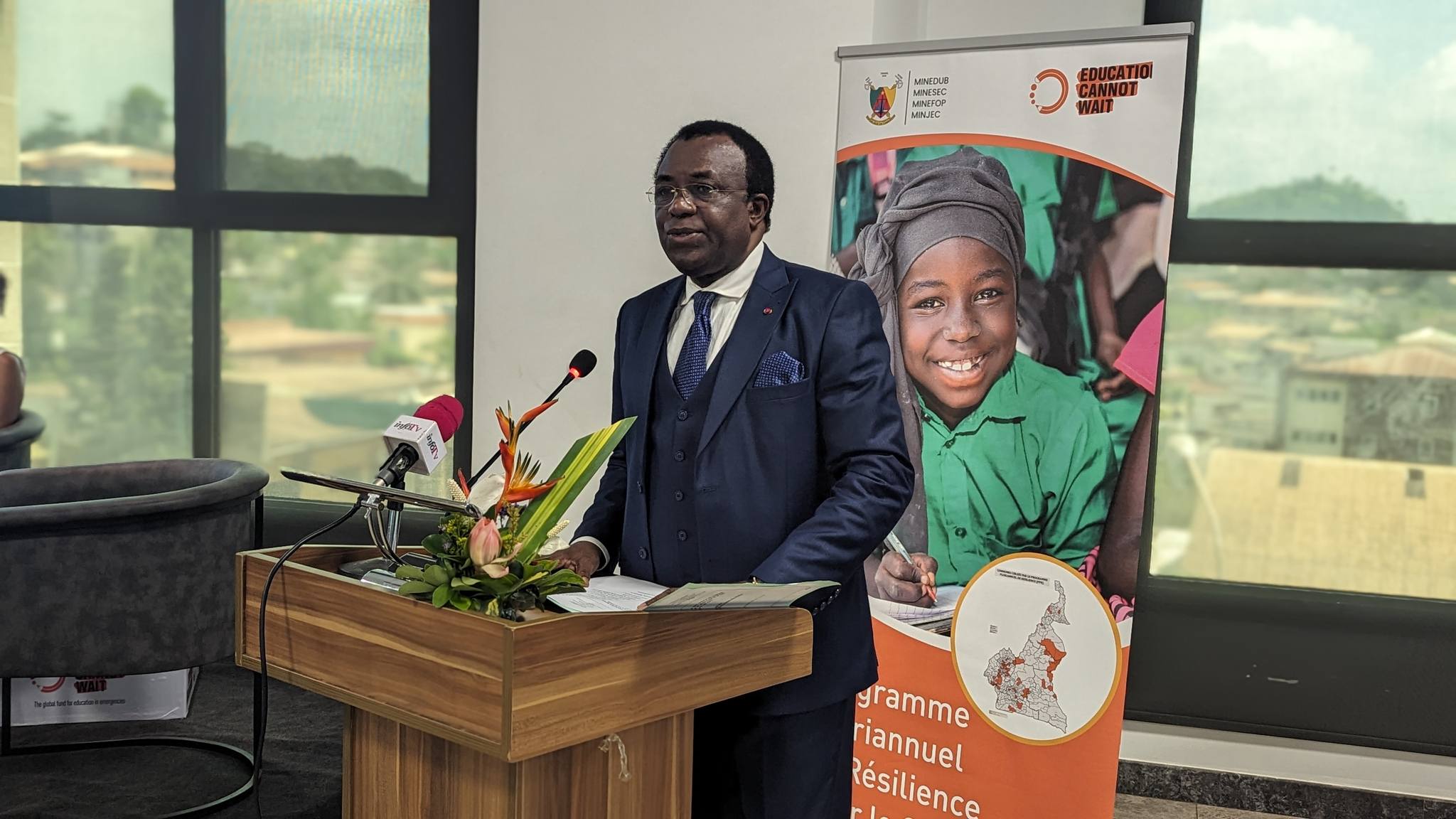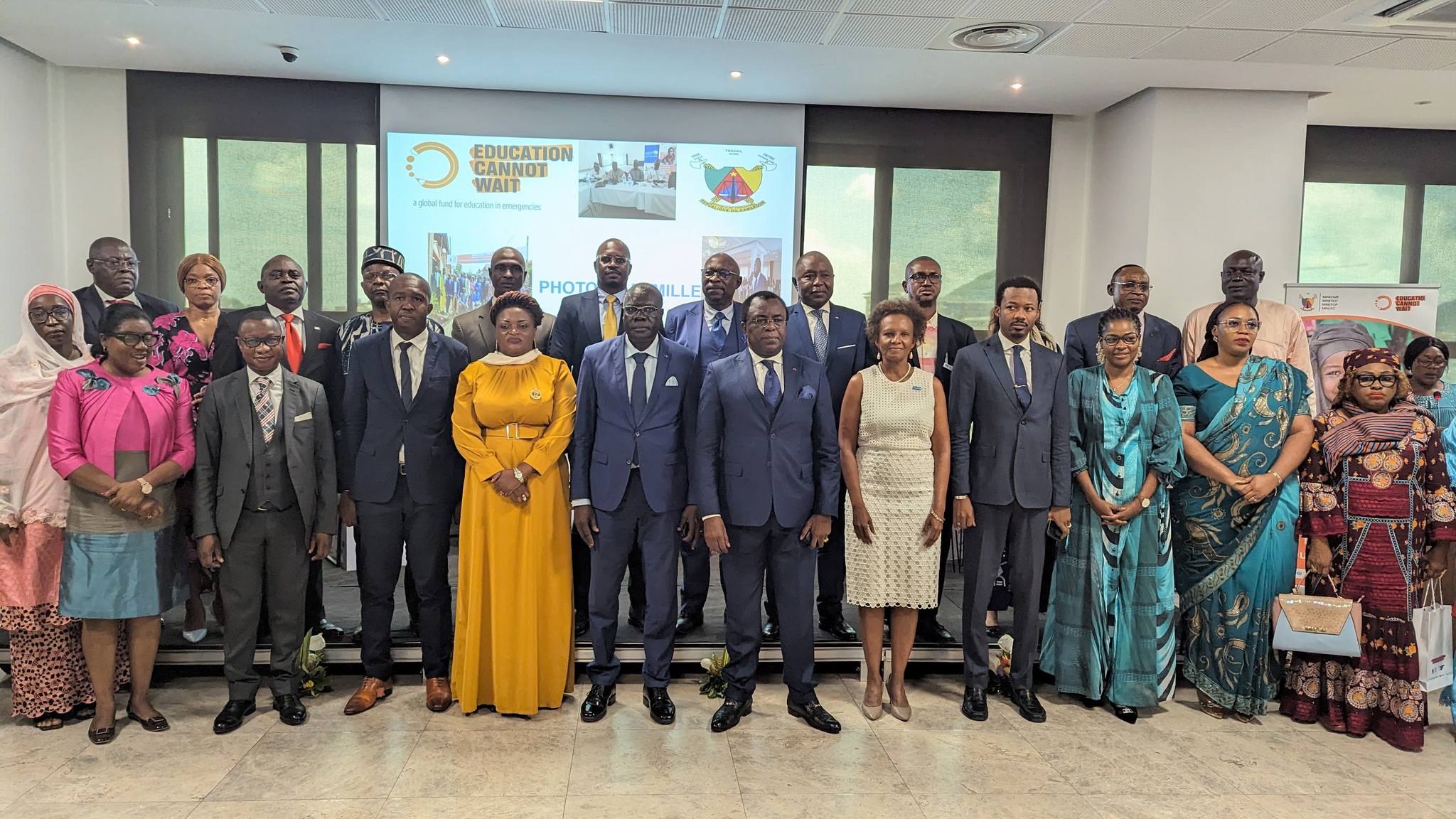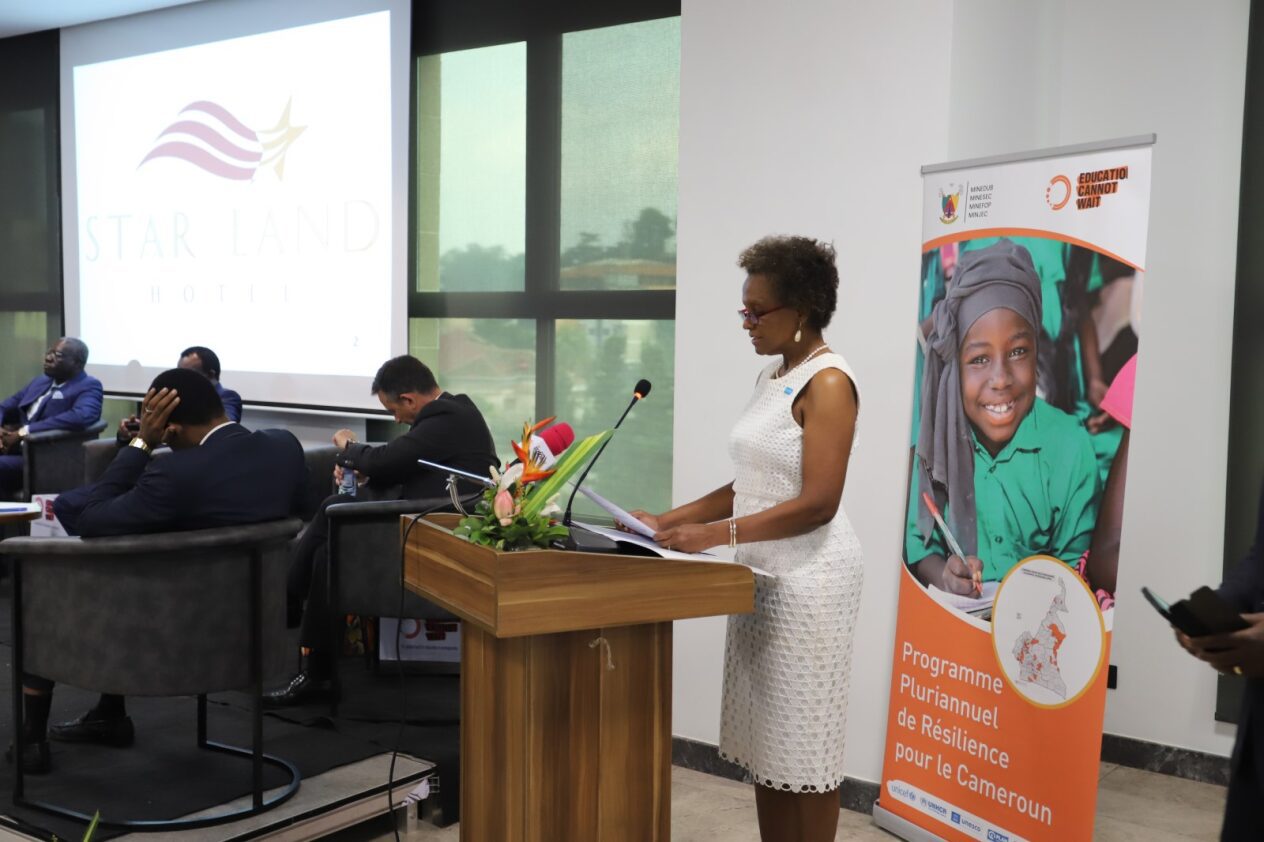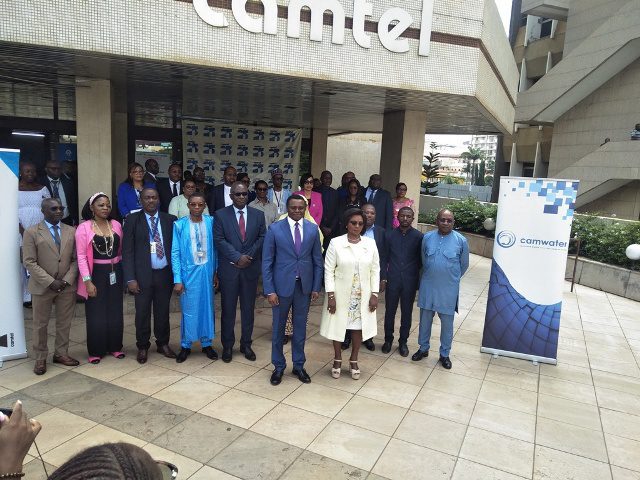►► In collaboration with the Cameroonian government, the mid-term results of the Pluriannual Resilience Program « MYRP » was presented on June 19, 2024, in Yaoundé during a ceremony presided over by the Minister of Basic Education Professor Laurent Serge Etoundi Ngoa. It had another specific objective: raising funds from its partners (NGOs and banks) that promote education.

Afrique54.net | Implemented in 2022, the Multi-Year Resilient Programme MYRP has been put in place to finance countries affected by social unrest, environmental crisis and others aspects like countries hosting refugees, where Cameroon is then among the 25 countries that were listed around the world, and where the right to education, a fundamental principle of school-age children is disrupted. Coming out with the first stage of the programme launched in June 2022, the Unicef representative came out with important data.
On the total budget of 75 Million USD needed to cover 681,000 children requiring better educational conditions, Education Cannot Wait provided 25 million USD to start the programme. This enabled it to cover 227,000 children, especially in the Far North region, where the Lake Chad crisis on Boko Haram and the social unrest observed in the Central African Republic created important drawbacks. We can list internally displaced persons, returnees and refugees not only, but also children that were affected by the North-West and South-West crisis.
As it can be seen, a funding gap of 50 million USD is still left behind to cover the remaining 454,000 children. This is why, ECW has called its partners, namely the Islamic Development Bank, the Norwegian Education Council, the UNESCO, the French Development Agency and the UNHCR, to look out strategies to raise funds for the second phase of the plan.
« Malgré un déficit de plus de 50 millions de dollars, je suis convaincue qu’ensemble, nous pouvons atteindre nos objectifs et permettre à 454 000 enfants dans les zones touchées par la crise de bénéficier d’une éducation de qualité et de services de protection », La Représentante de l’Unicef Nadine Perrault.
Donors and good promises
The least we can say is that all the partners have promised to seek funds to save education. For Cesar TSHILOMBO MBAV, the Representative of the UNHCR “The problem is very dear to our hearts. The UNHCR will continue to mobilise funds from its donors to help refugee children go to school”.
For his part, Hilaire Mputu, head of the education sector and UNESCO representative said, « In the same spirit, UNESCO will do its bit to the construction of this edifice so that it is complete« . Whether it’s the World Food Programme, the Norwegian Refugee Council or others, « we can’t give up!!!« , they promised.
LIRE AUSSI : Plus de 700 000 enfants affectés par les fermetures d’écoles au Cameroun

All the ministries in charge of education in Cameroon came out with their views to enhance the conditions of children in schools. Closing the meeting and after witnessing poems and presentations from deaf students, Laurent Serge Etoundi Ngoa assumed that: « The mayors must make Cameroon’s school map a realistic one. There should be close collaboration between the mayors and our educational partners at the local level », He said.

© Afrique54.net |Joseph Ayangma, depuis Yaoundé






